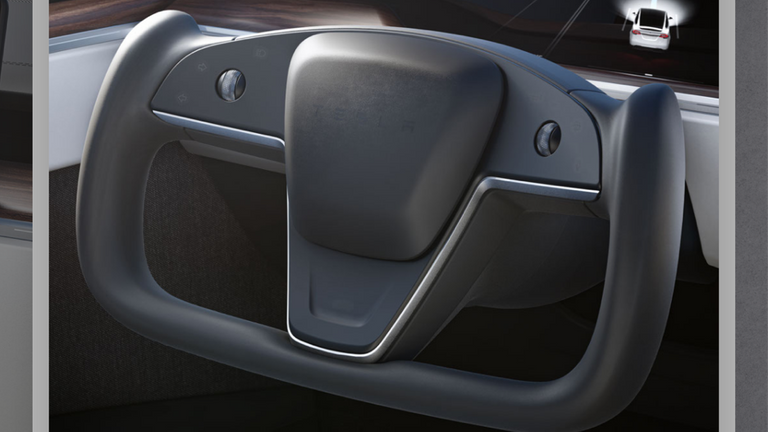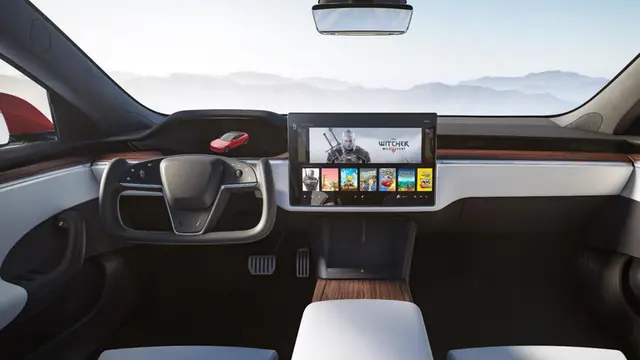Tesla has reinvented the steering wheel for drivers of its new Model S and Model X electric vehicles, replacing them with what it believes to be an aesthetically pleasing yoke design.
Described as "the ultimate focus on driving", the stalkless steering yoke is the latest retro-futuristic gambit from Tesla since the somewhat
bungled unveiling of the Cybertruck
in 2019.
The preview images of the design for its flagship Model S saloon have prompted a mixed response. Some admired the bold decision while others expressed concerns about how it would affect their driving - and some quipped whether they would need to pay extra for the rest of the wheel.
Please use Chrome browser for a more accessible video player

Oops... Tesla armoured glass demo goes wrong
The proverb "if it ain't broke, don't fix it" was never going to be engraved above the entrance to one of Tesla's factories.
It is now the most valuable car maker in the world, having broken most of the rules of how automotive companies should make money.
Tesla ships far fewer units that its major rivals, but this year also managed to report
a profit of $721m (£528m) for 2020
compared with a loss of $862m (£632m) a year earlier.
The financial results cap a year in which Elon Musk - who owns 20% of all of the company's shares - overtook Bill Gates to become
the world's second richest man
, and **briefly overtook Jeff Bezos
** to become the world's first richest, according to one report.
Additional preview images showed the Tesla featuring the game The Witcher III, suggesting the ability to play video games on the car's computers and screens - with a back seat screen also showing a game.
The company's stock has surged by 700% in the past 12 months, taking the company's value to more than $800bn (£586bn) and surpassing Toyota.

Image:Tesla's new steering wheel has received a mixed response online
Tesla's bottom line for the year was boosted by $1.58bn (£1.16bn) worth of environmental regulatory credits, which it is able to sell to other less environmentally-friendly car makers - and without these it would have remained in the red.
Still, its delivery of more than 180,000 vehicles during the fourth quarter was a record, though it narrowly missed a target to ship 500,000 for the year as a whole.
Total revenues for the year rose 28% to $31.5bn (£23bn).
 简体中文
简体中文

